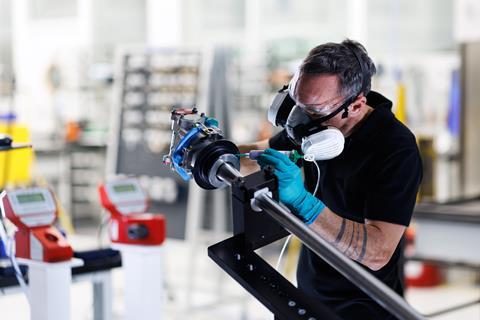Collins is turning its sights to electric thrust reverser actuation systems as it prepares to divest its traditional hydraulic actuator business to rival Safran.
The RTX subsidiary already supplies what it calls its elecTRAS electric thrust reverser actuation system to the Airbus A350. However, it plans to open an engineering centre in Wolverhampton in the UK and production line in the Toulouse suburb of Colomiers to “deliver new solutions” to manufacturers of existing and future aircraft programmes, including next-generation narrowbodies, says Ajay Mahajan, president of Collins’ aerostructures business unit.

Collins says that electric thrust reverser actuation systems – which are fitted to the nacelle and redirect thrust from the aircraft’s engines to help it slow when landing – are up to 20% lighter than their hydraulic counterparts. They also reduce time to certification and “installation complexity” because they have fewer parts, it claims.
Collins says its Wolverhampton “centre of excellence” will work closely with its aerostructures headquarters in Chula Vista, near San Diego in “helping to advance technologies for current and next generation programmes”.
Meanwhile, the business says that consolidating assembly of elecTRAS in France will “increase Collins’ nacelle integration capacity and enhance customer proximity” to the A350 production line in Toulouse.
Collins says elecTRAS has notched up more than 11 million flight hours on the more than 600-strong fleet of A350s.
Mahajan says that Collins is in “active discussions” about retrofitting the technology to current aircraft programmes. “We are not just waiting for the next-generation single aisle,” he says. “elecTRAS is platform agnostic and we would like to find an existing programme to derisk it for the next generation.”
Safran announced that it was acquiring Collins actuation and flight control activities in July 2023, but regulators investigating market competition concerns have delayed the process. The deal was cleared by the European Commission in early April, with national regulators in Italy and UK issuing their approvals at the beginning of June.
Collins has been investing heavily in electric technologies across its various businesses, including engine controls, brakes, and battery systems.


























